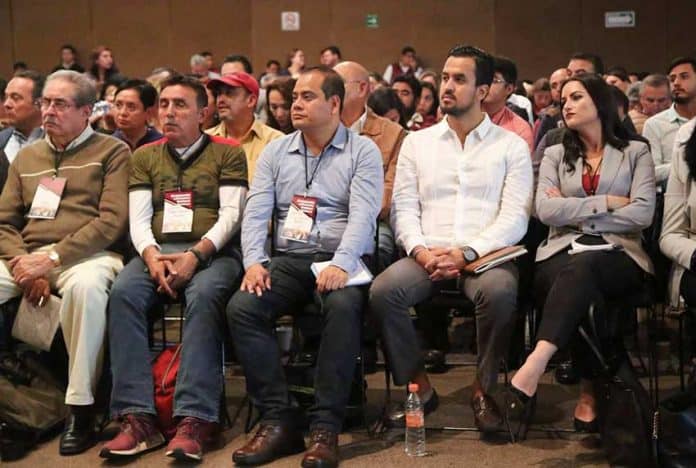A new, centralized resource distribution scheme to be introduced during Andrés Manuel López Obrador’s presidency is intended to deny opportunities for Mexico’s governors and other state officials to dip their hands in the cookie jar.
Powerful federally-employed delegates will directly manage the resources allocated to states to ensure that funding goes where it is intended, the incoming government has announced.
A total of 32 state delegates and 264 regional ones will be employed to distribute social program funds directly to the intended beneficiaries and avoid state governments appointing favored contractors to carry out infrastructure projects with federal money.
They will replace a large number of officials that each federal secretariat currently employs to distribute government funds and liaise with state authorities.
The delegates will be coordinated by Gabriel García Hernández, a Morena party senator-elect and longtime political confidante of López Obrador.
After meeting with the president-elect Saturday, some of the nominated delegates told the newspaper Reforma that the aim of the scheme is to avoid public funds going into “governor’s pockets.”
Several state governors have been accused of embezzlement and other corrupt practices in recent years including Javier Duarte in Veracruz, César Duarte in Chihuahua and Roberto Borge in Quintana Roo.
The delegates will have a direct line of communication to López Obrador and coordinate with federal government secretariats.
“What the president asked for is that we hold meetings with the people so that the resources can be used in a participatory budget scheme in which no [state] deputy, mayor or governor can intervene to try to install a construction company [of their choice], determine the project and receive a kickback,” one of the proposed delegates said.
Olga Sánchez Cordero, tapped by the president-elect to be secretary of the interior, said the delegates will manage resources that the federal government, through departments such as the Secretariat of Social Development (Sedesol), has always managed.
However, she explained that the difference will be that “the resources will flow down through a single delegate.”
The prospective officials have been instructed to avoid allowing state government executives to touch the money.
“All the funds for federal projects are not going to be handed over to the states because they usually keep 10% or 20% of the money . . .” another prospective delegate told Reforma.
“. . . We’re not plenipotentiary but the resources are going to go directly to the people,” an unidentified member of the future government said.
López Obrador also directed the future delegates to coordinate with the military and other federal security forces and to review registries containing the names of the beneficiaries of different federal programs.
Social program audits have previously found that federal money has been squandered because it went were it shouldn’t have gone, such as dead people.
The Federal Auditor’s Office (ASF) found that Sedesol made support payments to more than 17,000 deceased people in 2016, costing taxpayers almost 66 million pesos, while the federal Agricultural Secretariat (Sagarpa) paid out millions of pesos in farm subsidies the same year to ineligible beneficiaries, including people who had died and civil servants.
López Obrador, who won the July 1 presidential election in a landslide, campaigned heavily on the promise that he would stamp out endemic government corruption.
The incoming government has also announced that it will implement a centralized purchasing system to avoid corruption, while there are also plans to slash the wages of politicians and government officials.
López Obrador and his cabinet will be sworn in on December 1.
Source: Reforma (sp)
